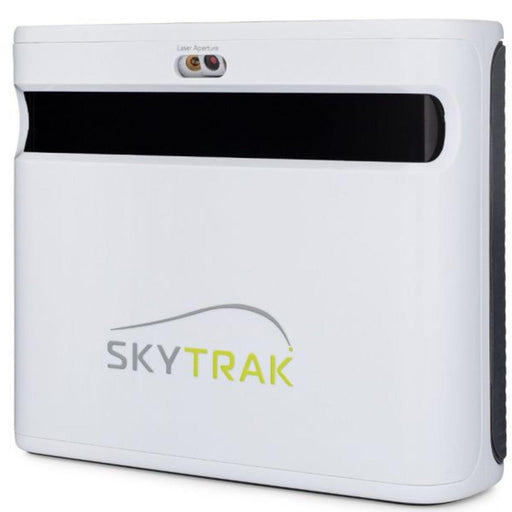Now through January 5th 15% OFF our very popular Vanish and Parlour Enclosures. Coupon code 15SWINGMASS

Crafting Simulated Golf Courses for Golf Simulators
Have you ever wondered how the breathtaking landscapes and challenging layouts of golf courses find their way into your home through golf simulators? In this blog post, we'll take a behind-the-scenes look at the intricate process of creating simulated golf courses for golf simulators, exploring the technology, creativity, and attention to detail that goes into crafting these virtual landscapes.
1. Data Collection and Scanning:
The journey begins with data collection and scanning of real-world golf courses using advanced technology such as LiDAR (Light Detection and Ranging) and photogrammetry. These methods capture detailed elevation data, terrain features, and visual textures, creating a digital representation of the course with remarkable accuracy. Launch monitors play a crucial role in gathering ball flight data and player feedback, ensuring that the simulated course mirrors the real-world experience.
2. Course Design and Reconstruction:
Once the data is collected, skilled designers and developers use specialized software to recreate the course layout and features in the virtual environment. This process involves meticulously placing fairways, bunkers, water hazards, trees, and other landmarks to replicate the course's unique character and challenge. Designers often collaborate with golf course architects and professionals to ensure authenticity and accuracy in every detail.
3. Integration of Gameplay Mechanics:
In addition to visual fidelity, simulated golf courses must offer engaging and realistic gameplay mechanics. Developers leverage sophisticated algorithms and physics engines to simulate ball flight, roll, and interaction with the terrain. Launch monitors provide invaluable data on club performance and shot accuracy, allowing developers to fine-tune the simulation for optimal realism and player immersion.
4. Testing and Optimization:
Before a simulated golf course is released to the public, extensive testing and optimization are conducted to ensure a seamless and enjoyable experience for players. This involves rigorous playtesting, feedback gathering, and iteration to address any bugs, inconsistencies, or performance issues. Launch monitors play a crucial role in this phase, providing valuable insights into ball flight behavior and shot outcomes across different scenarios and conditions.
5. Ongoing Updates and Maintenance:
The creation of simulated golf courses is an ongoing process, with developers continually refining and updating existing courses and introducing new ones to keep players engaged. Launch monitors contribute to this process by providing feedback on player preferences, performance metrics, and emerging trends in the golfing community. By staying responsive to user feedback and technological advancements, developers ensure that simulated golf courses remain immersive, challenging, and enjoyable for players of all skill levels.
Behind the Scenes:
The creation of simulated golf courses for golf simulators is a fascinating blend of art, science, and technology. From data collection and course design to gameplay mechanics and ongoing maintenance, every step of the process is guided by a commitment to authenticity, realism, and player satisfaction. With the help of advanced launch monitors, developers continue to push the boundaries of what's possible in the world of virtual golf, offering enthusiasts an unparalleled opportunity to experience the thrill of their favorite courses from the comfort of home.

Have Questions About Golf Simulators?
Our expert team is here to help you find the perfect golf simulator for your needs.
Featured products
-
SkyTrak+
Original price $2,995.00 - Original price $3,145.00Original price$2,995.00 - $3,145.00$2,995.00 - $3,145.00Current price $2,995.00Introducing the SkyTrak+ Launch Monitor: Unmatched Accuracy and Advanced Features Experience a new level of precision and innovation with the SkyTr...
View full details -
ProTee Majestic Simulator Package
Original price $9,618.00 - Original price $13,848.00Original price$9,618.00 - $13,848.00$9,618.00 - $13,848.00Current price $9,618.00ProTee Majestic Golf Simulator Package: Elevate Your Indoor Golf Experience Transform your home or business into a golfer’s dream with the ProTee M...
View full details -
Eagle Golf Mat
Original price $370.00 - Original price $1,130.00Original price $370.00$370.00$370.00 - $1,130.00Current price $370.00Introducing the Eagle Golf Mat: The Ultimate Golf Experience Are you passionate about golf and demand nothing but the very best in your practice eq...
View full details -
Retractable HomeCourse® Golf ProScreen 180
Original price $2,299.00Original price $2,299.00 - Original price $2,299.00Original price $2,299.00Current price $1,999.00$1,999.00 - $1,999.00Current price $1,999.00HomeCourse® Golf ProScreen 180 HomeCourse® Golf ProScreen 180 is a retractable golf screen and enclosure. HomeCourse® Golf ProScreen 180's ballisti...
View full details -
The Augusta V2 4'x12' 2 Cups
Original price $399.00Original price $399.00 - Original price $399.00Original price $399.00Current price $329.00$329.00 - $329.00Current price $329.00The Augusta is one of Big Moss’ traditional models. It offers unmatched versatility for teaching and year round practice. Make a long-term investme...
View full details





